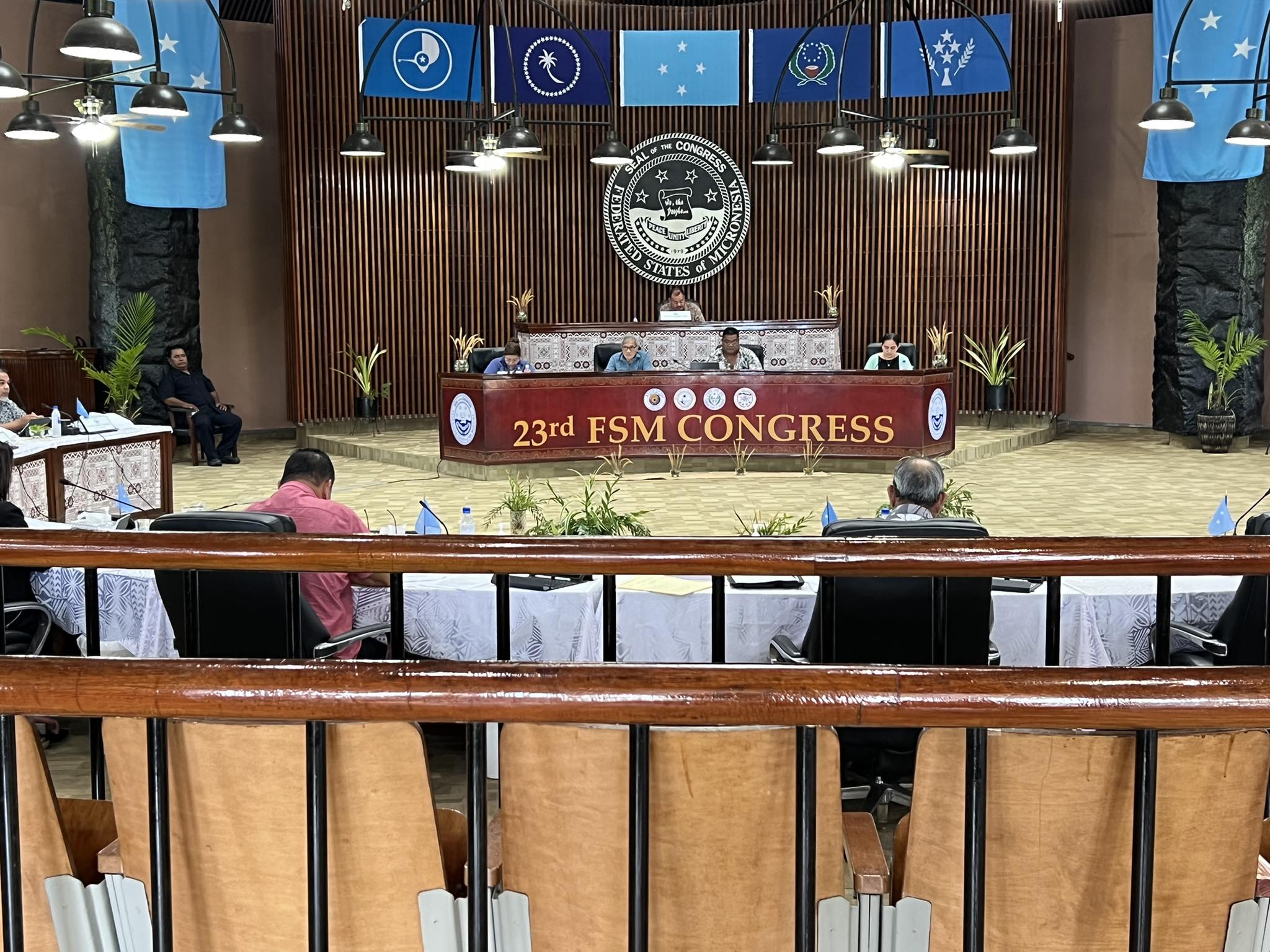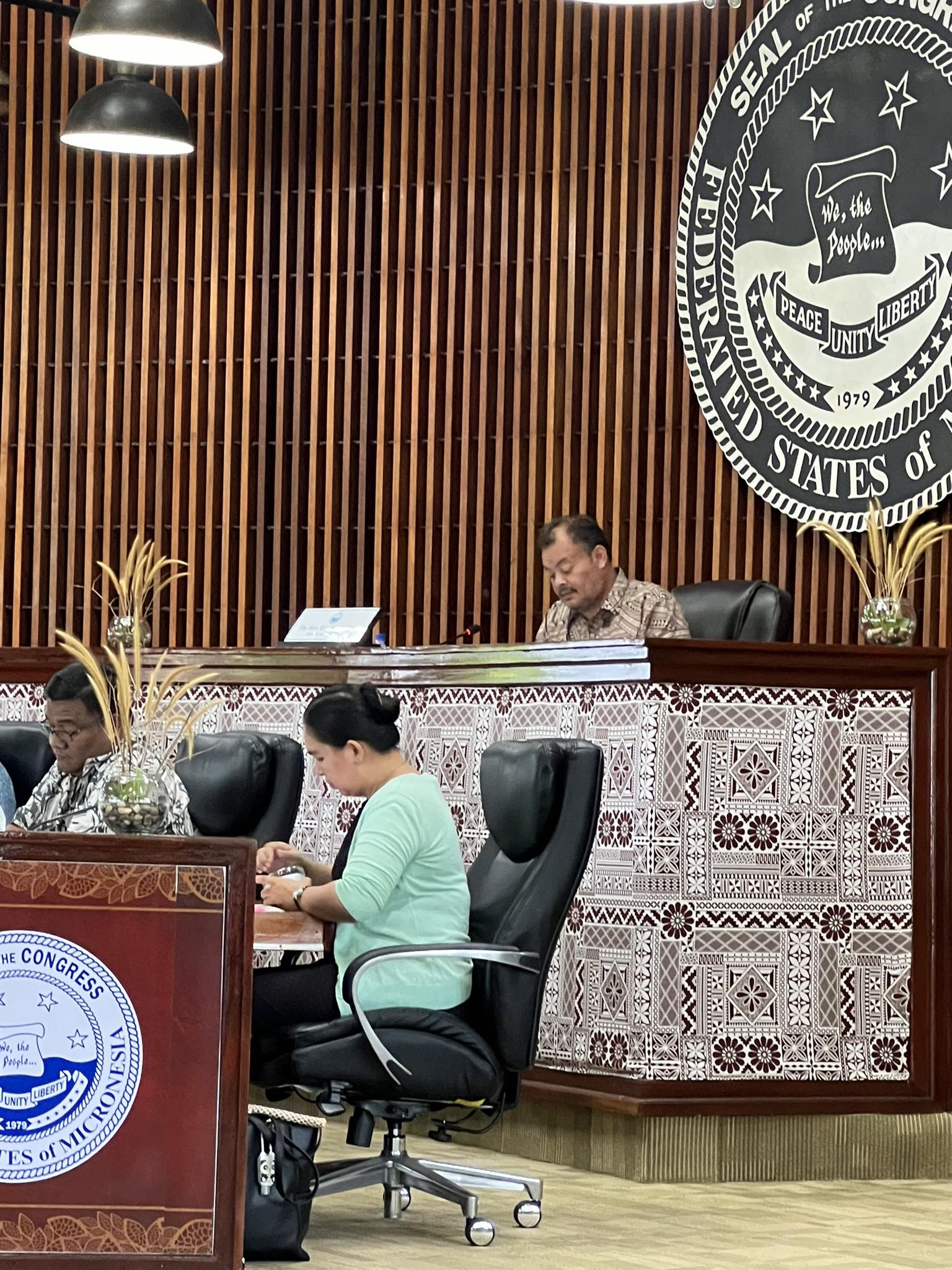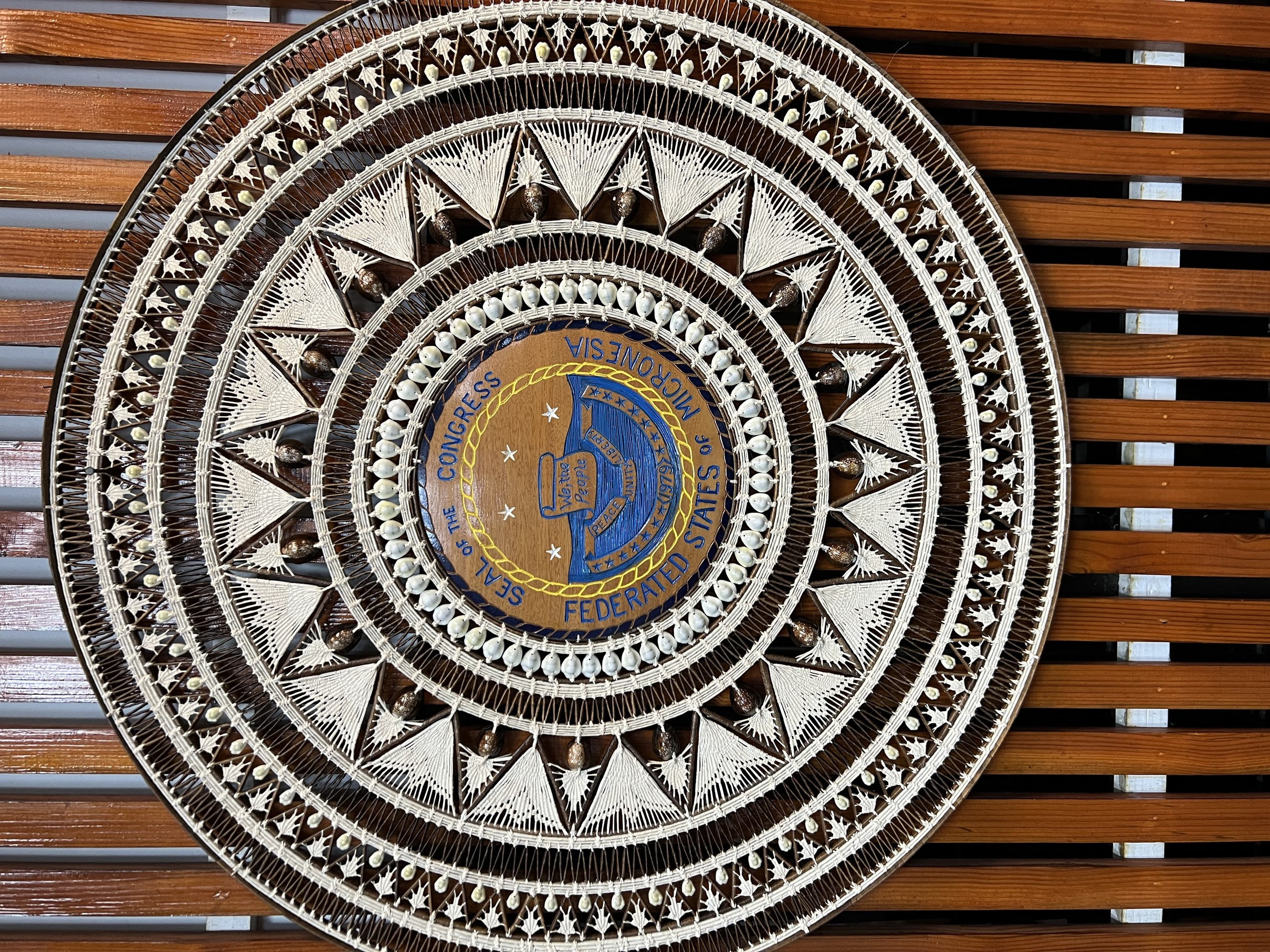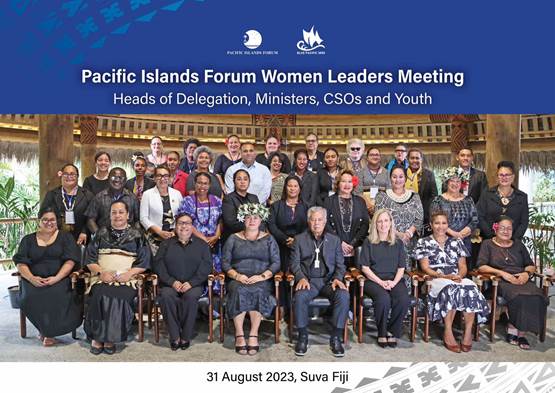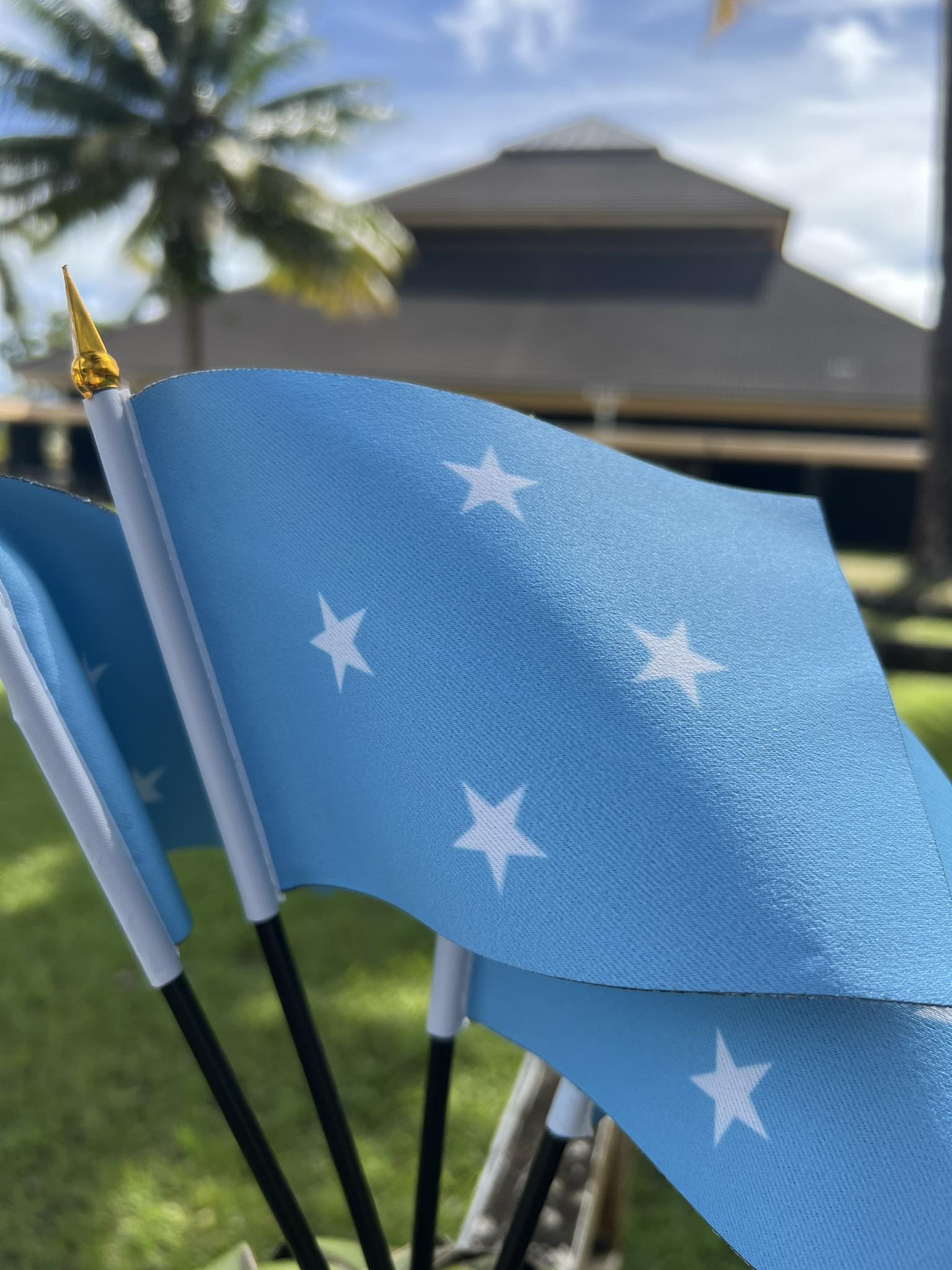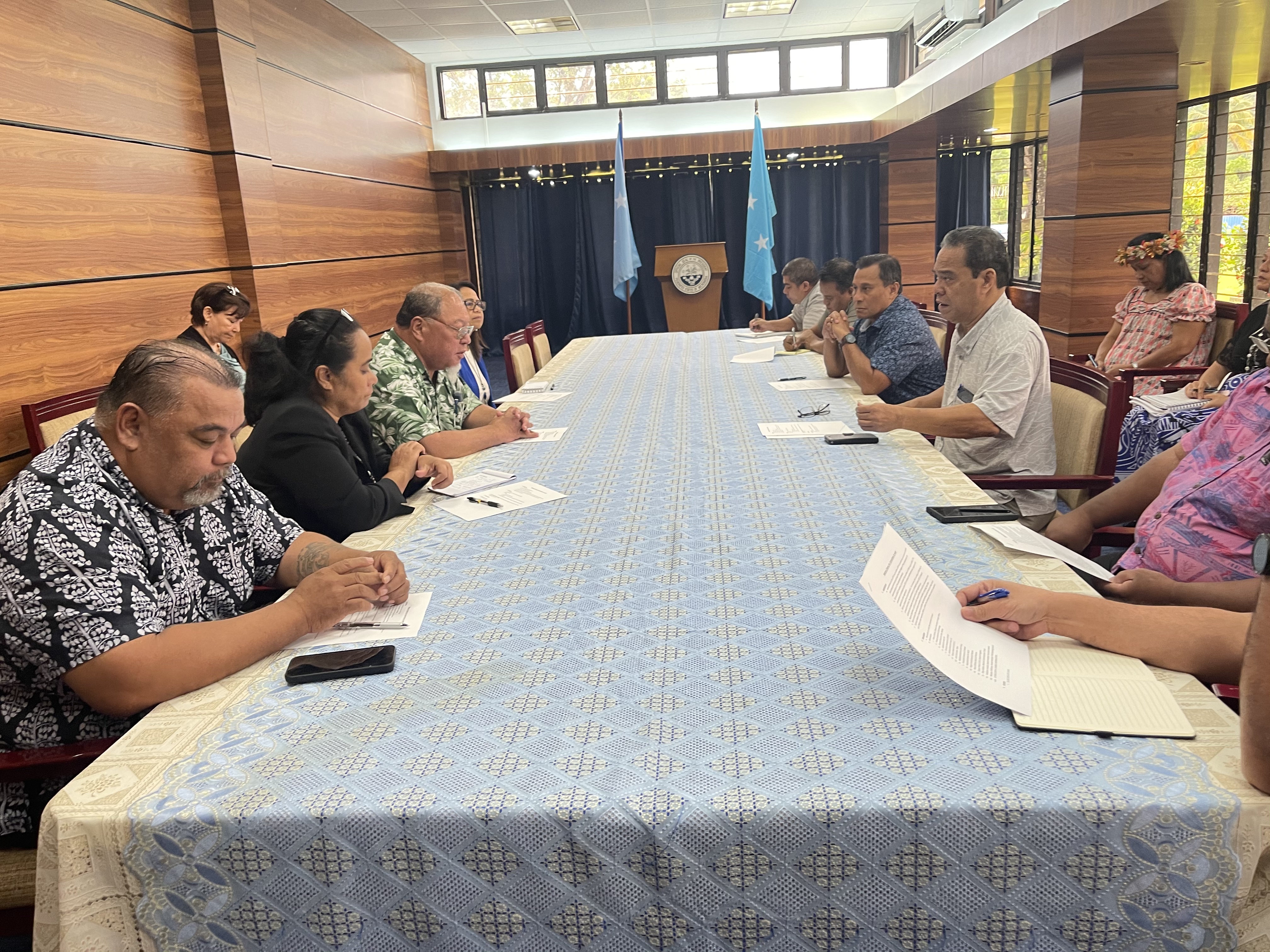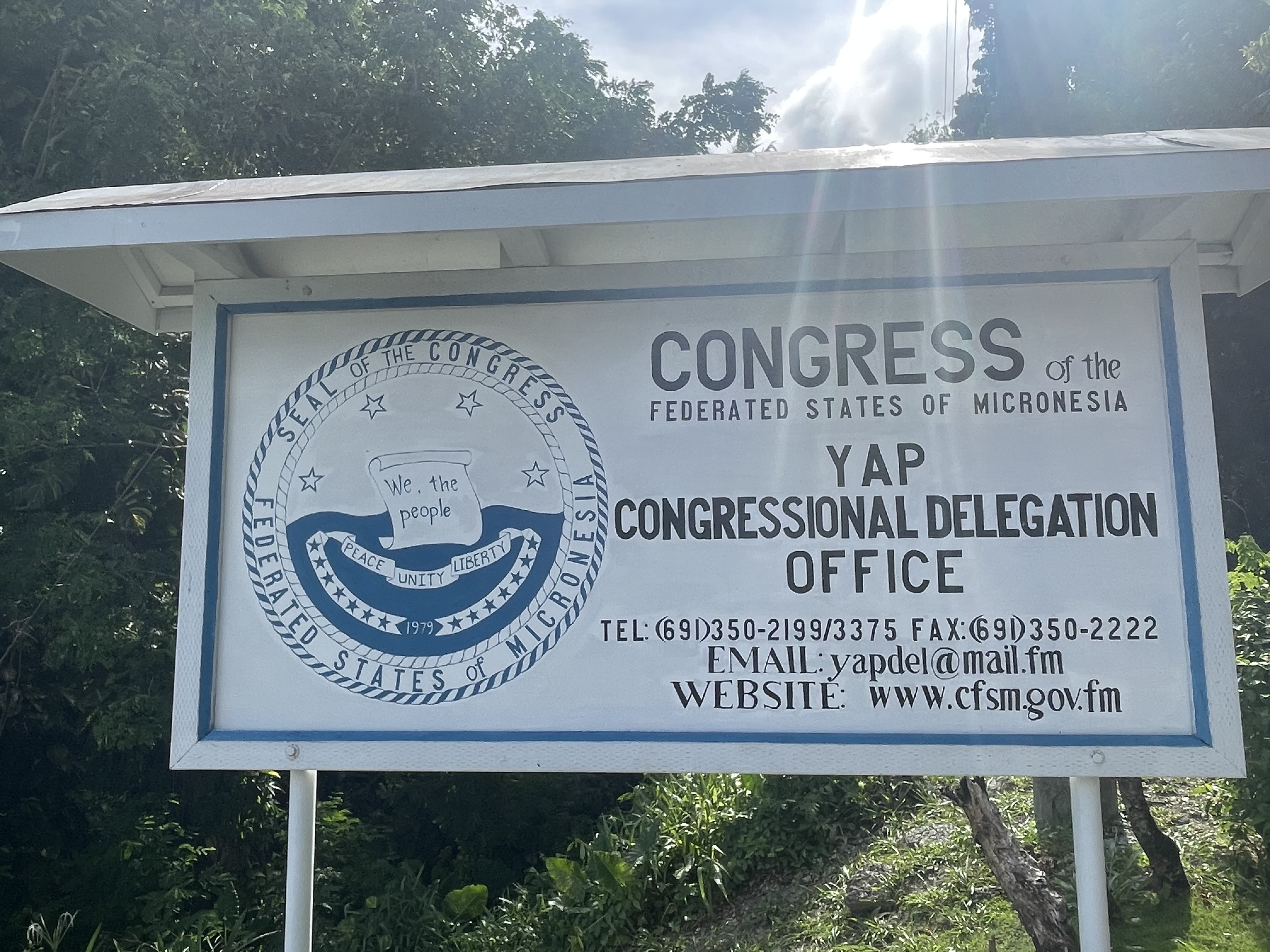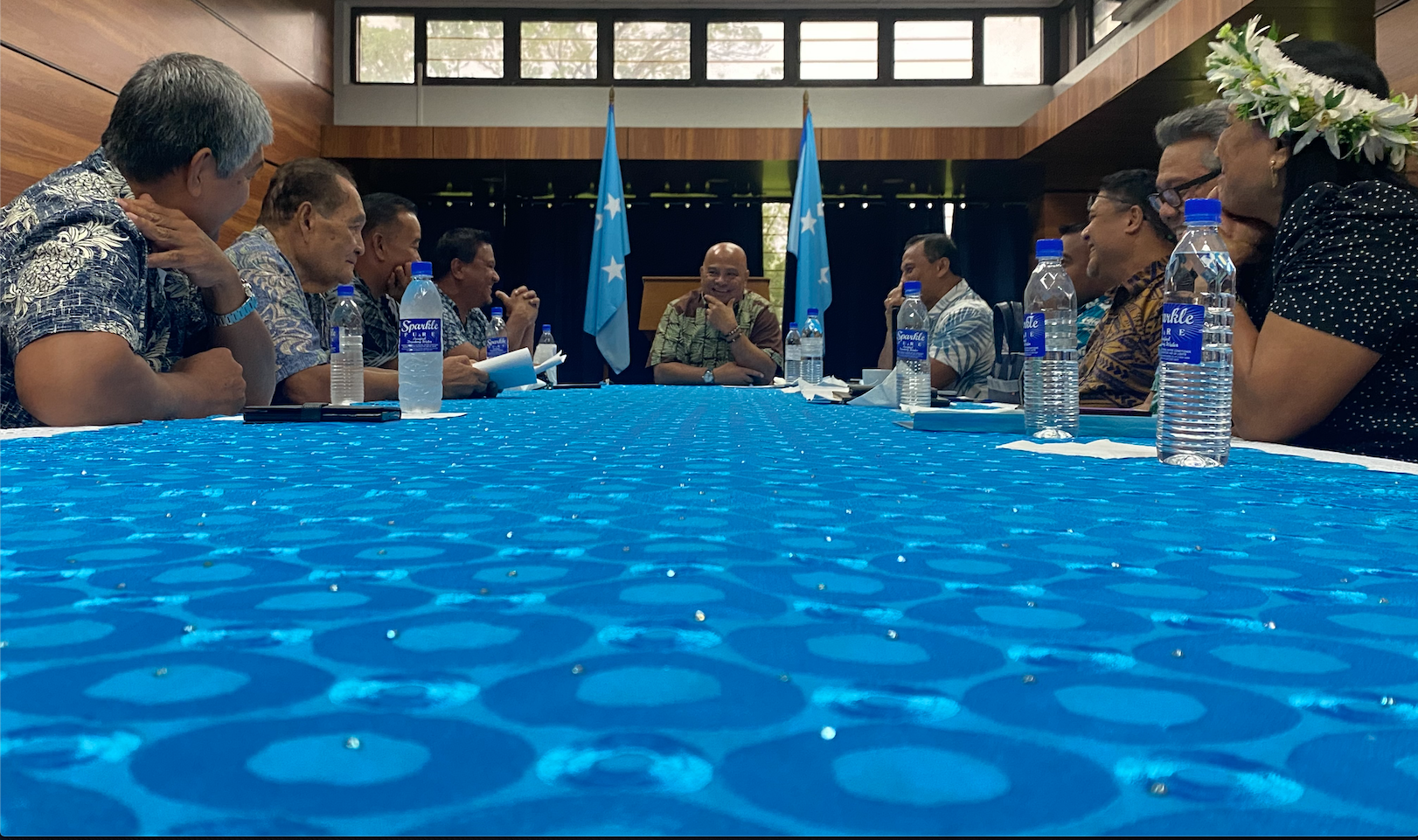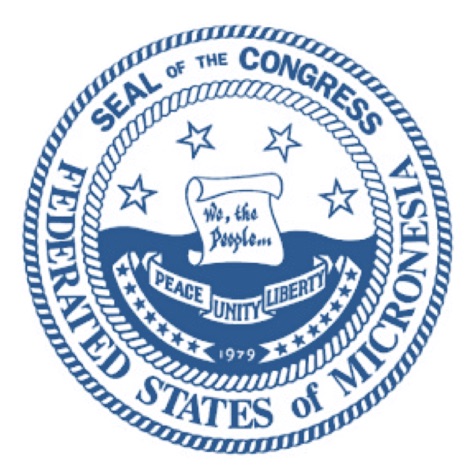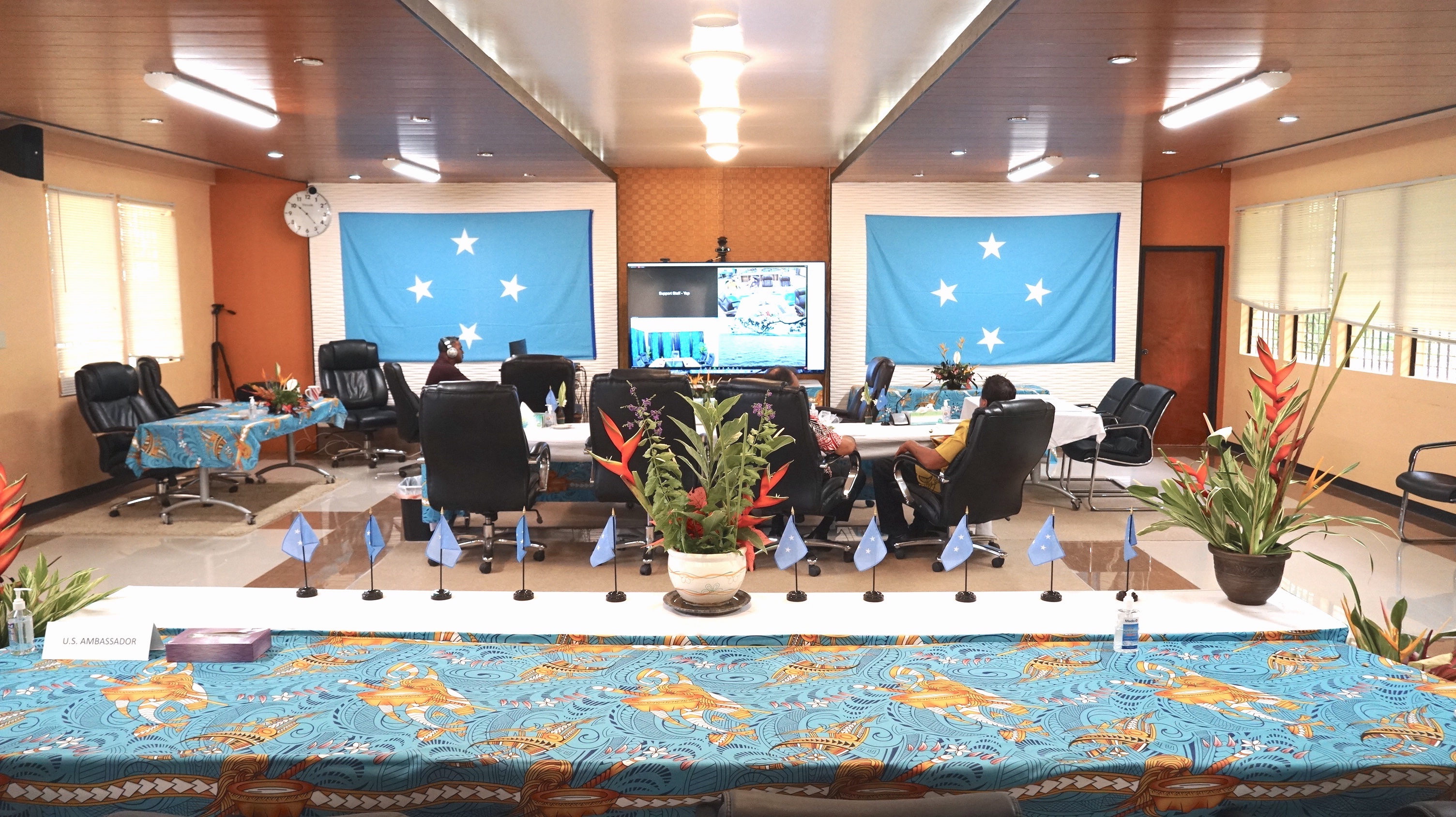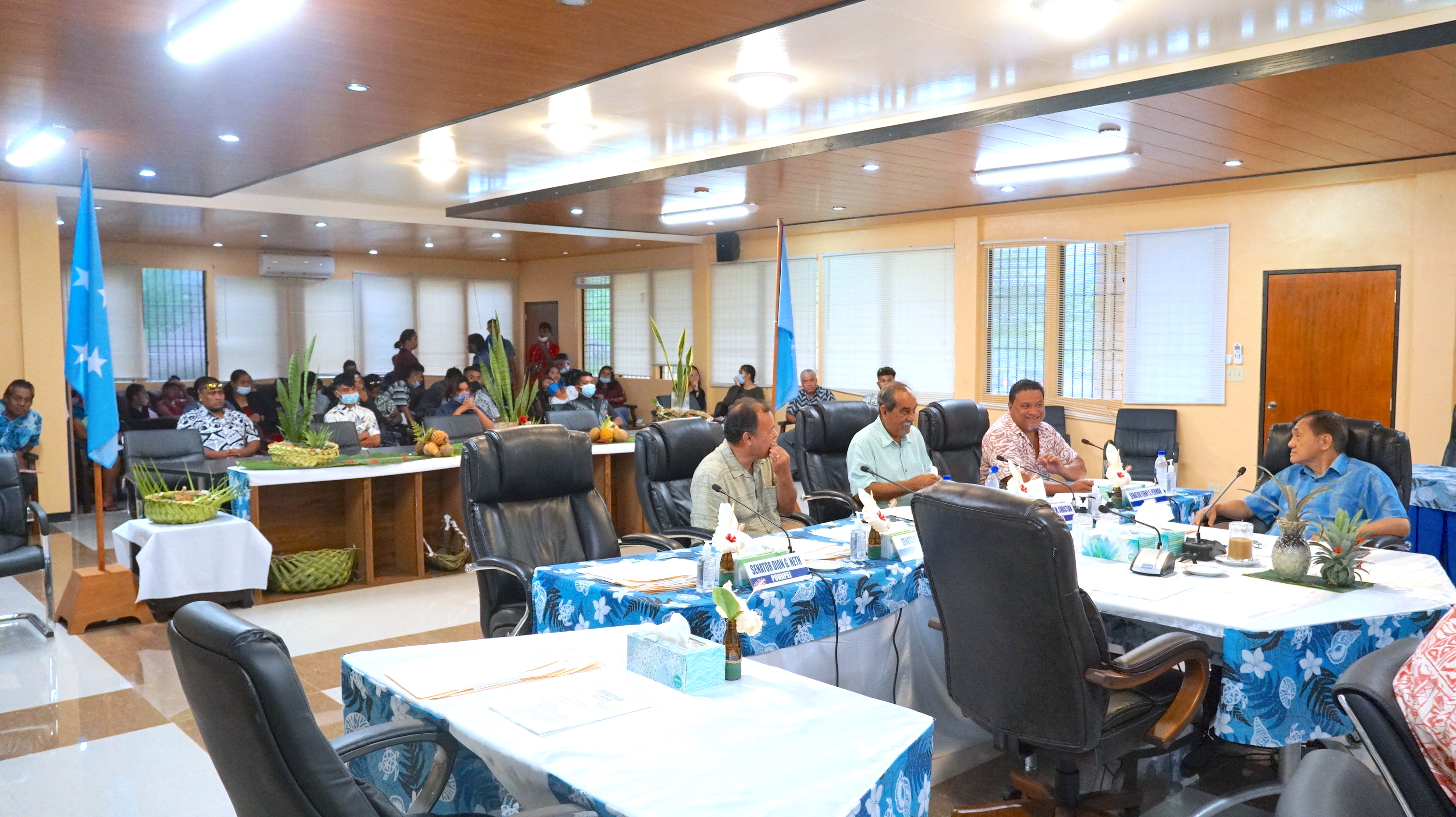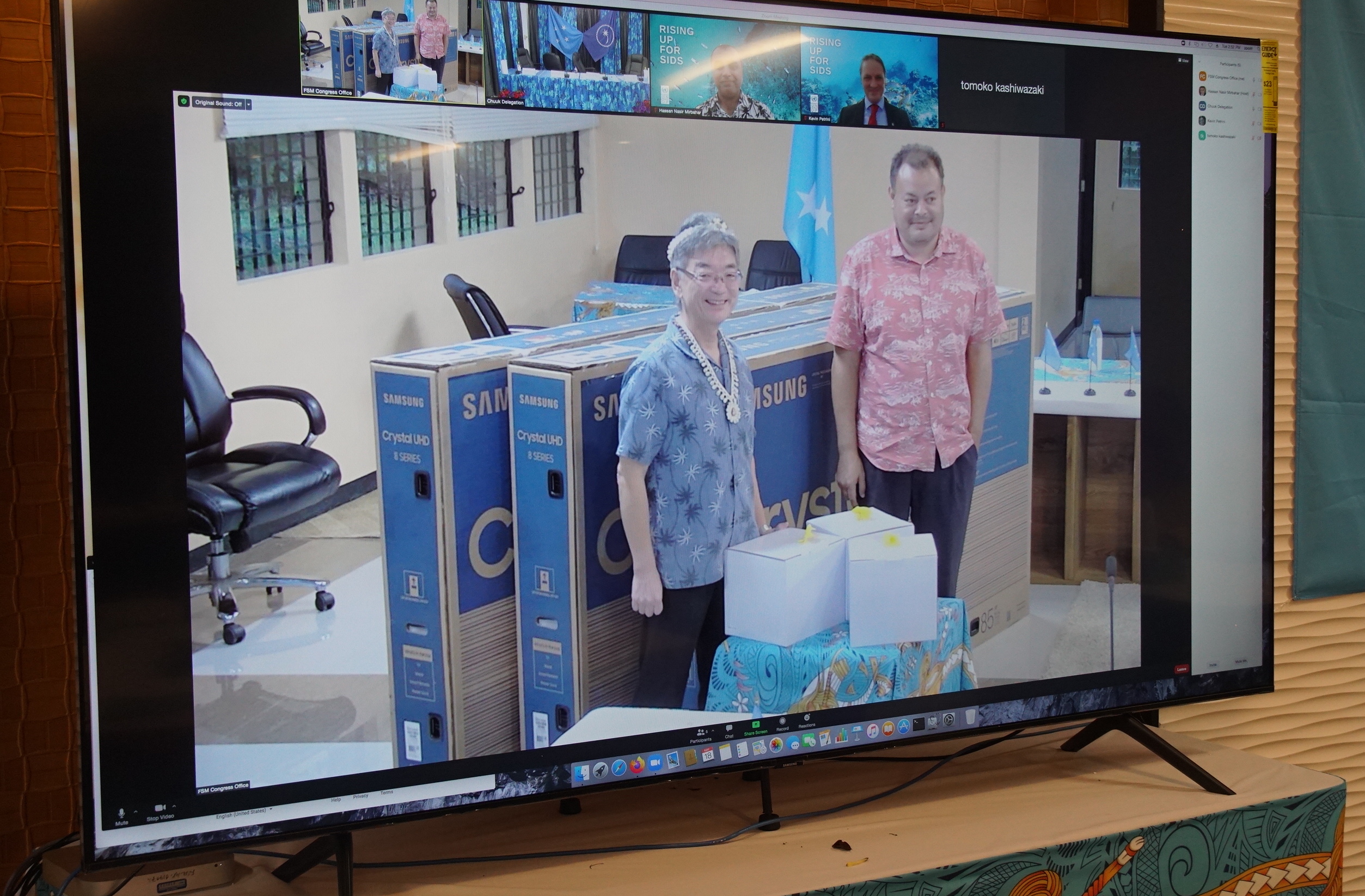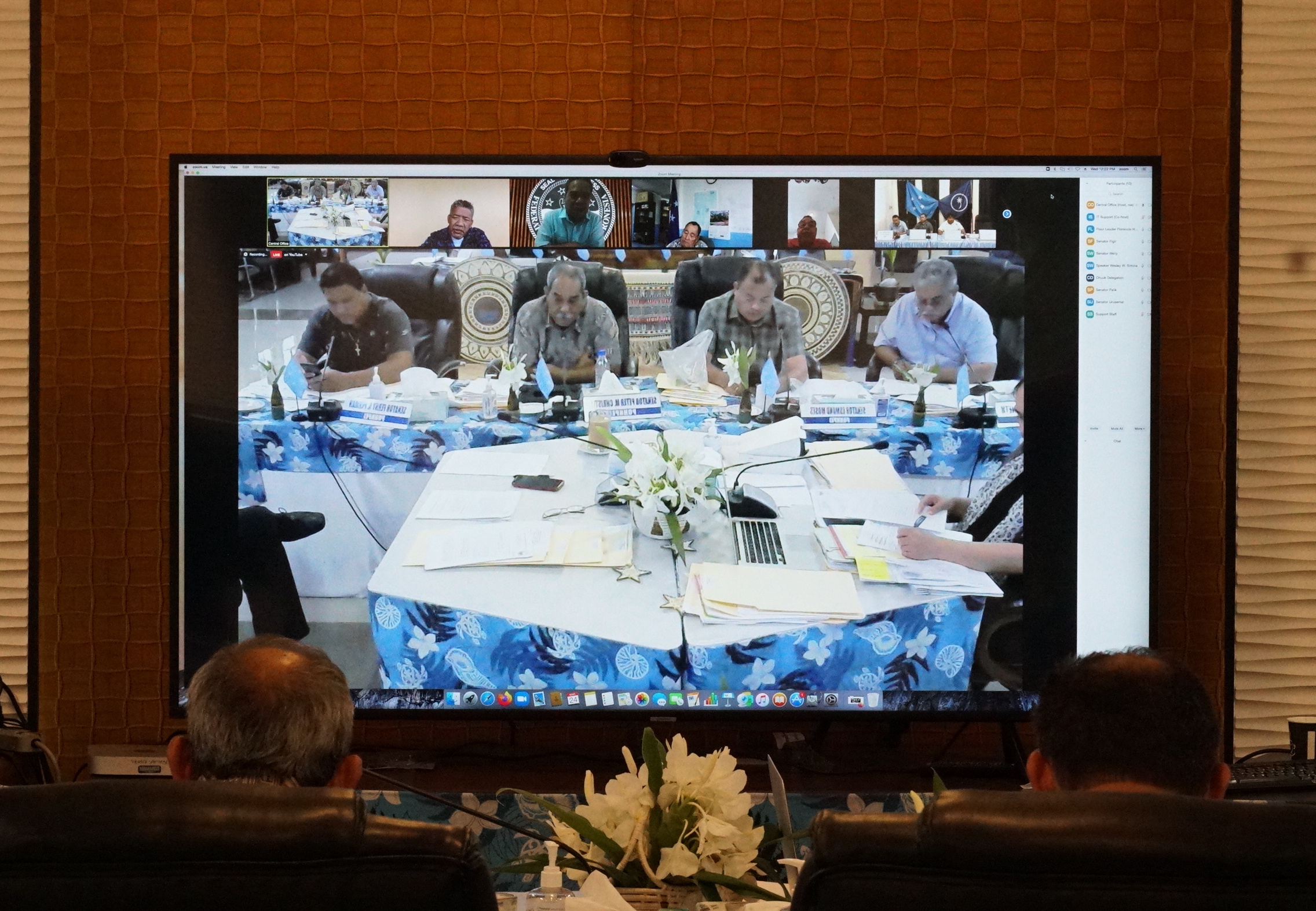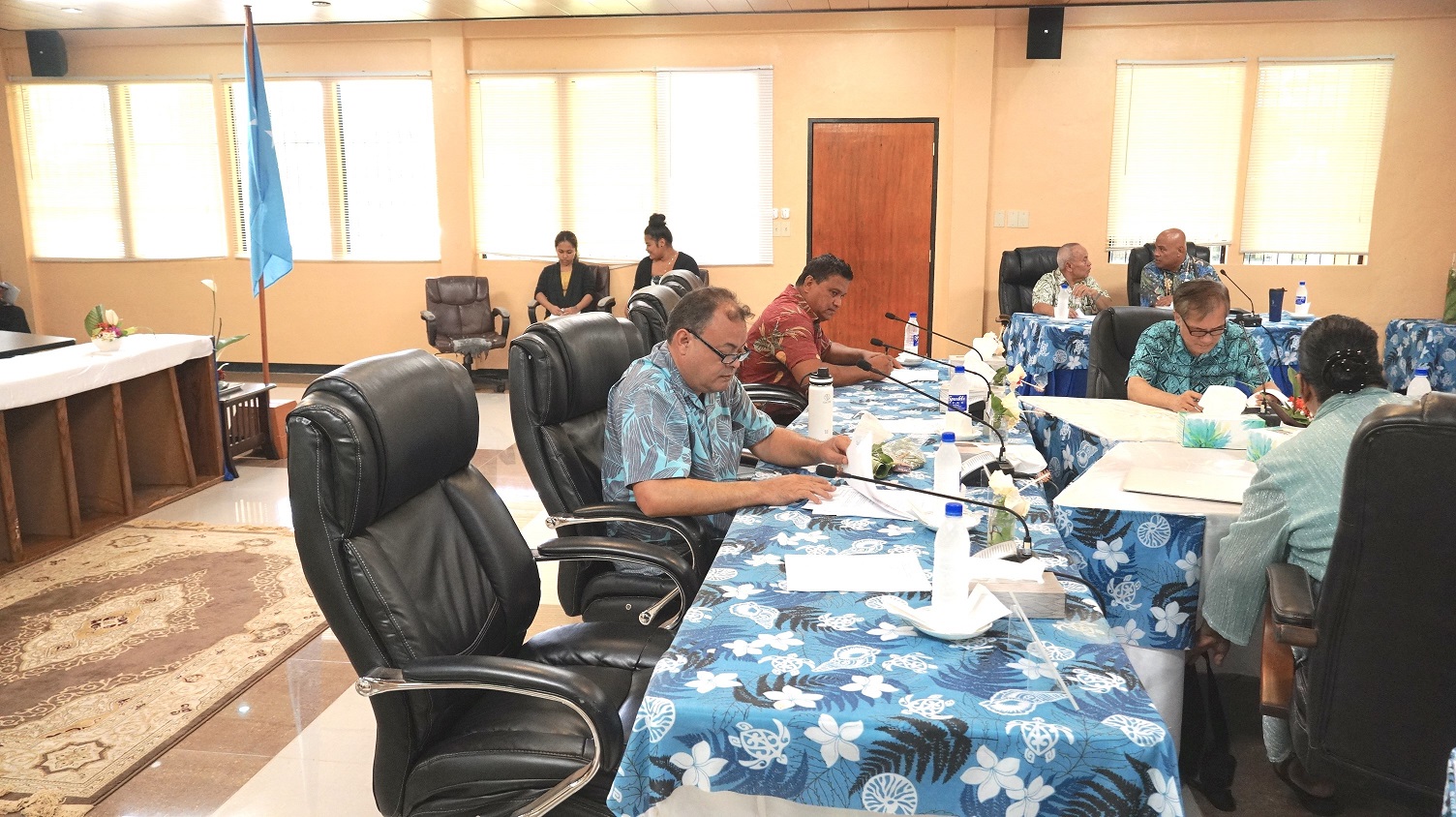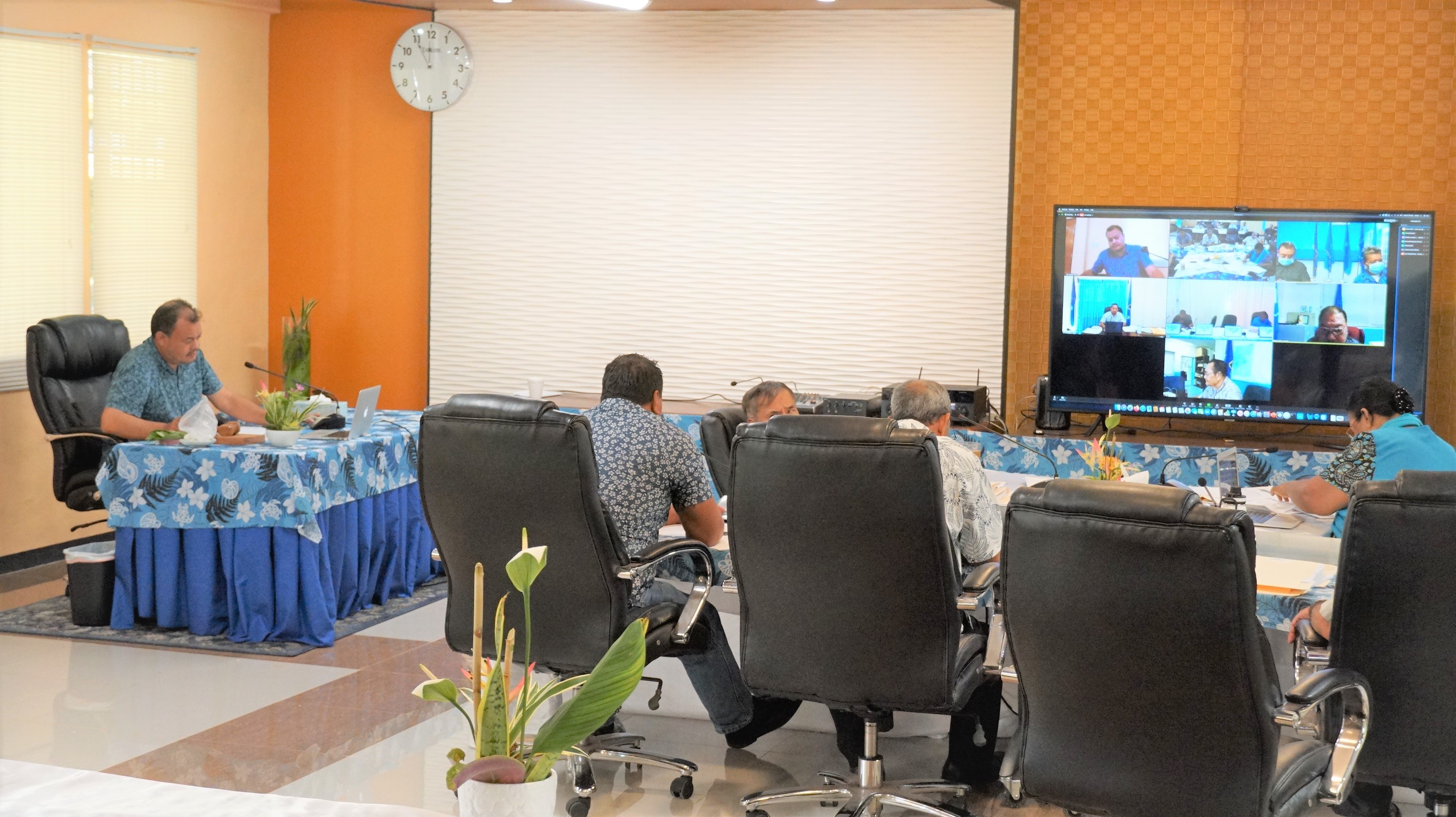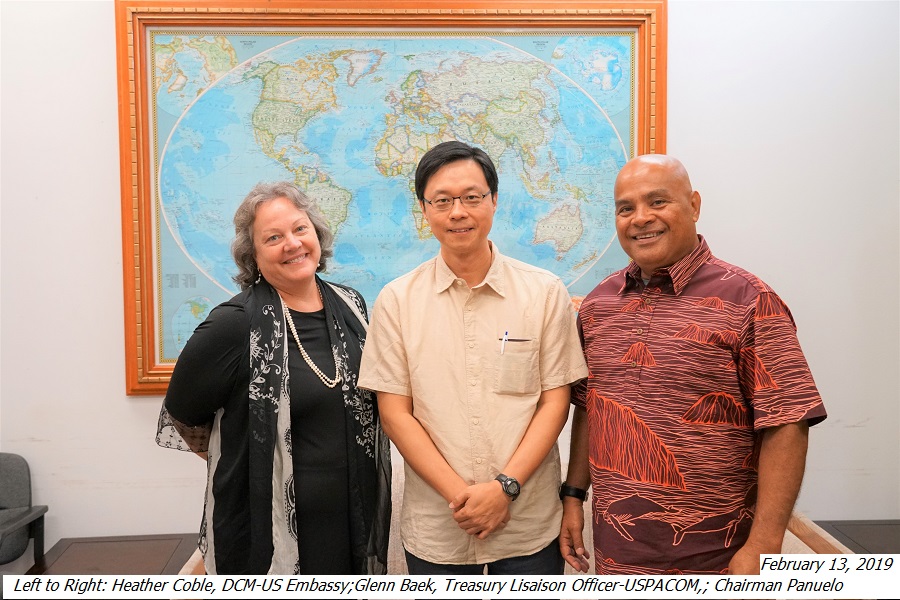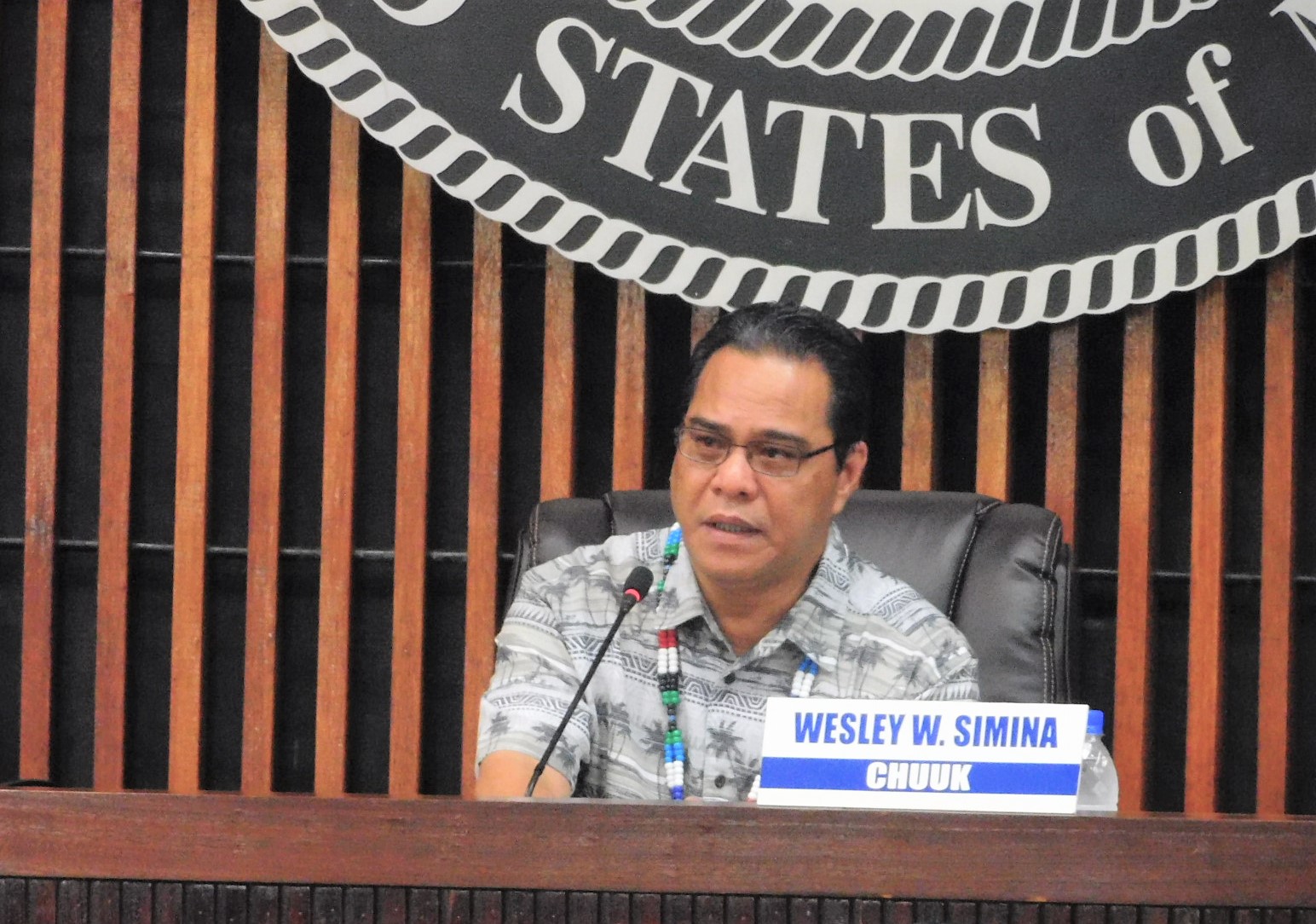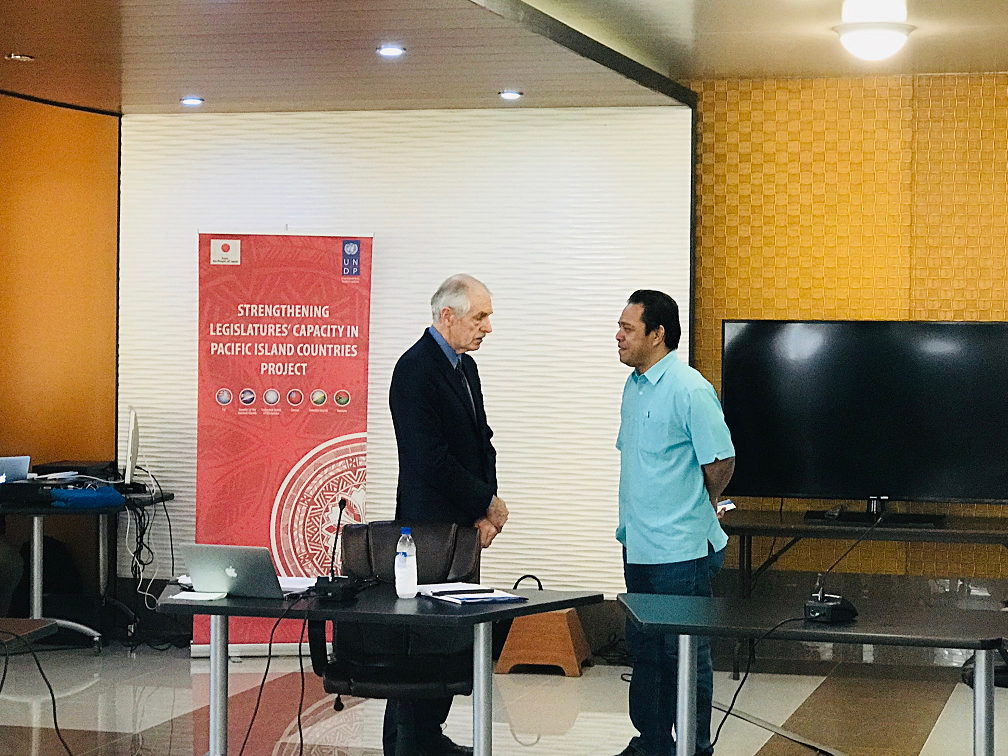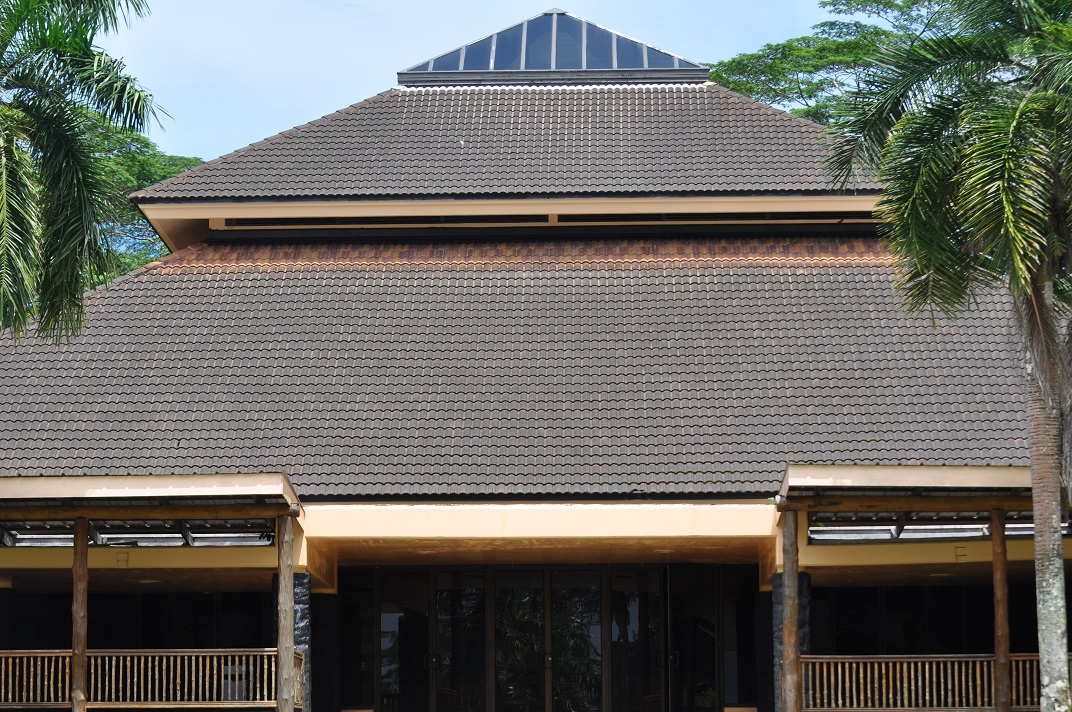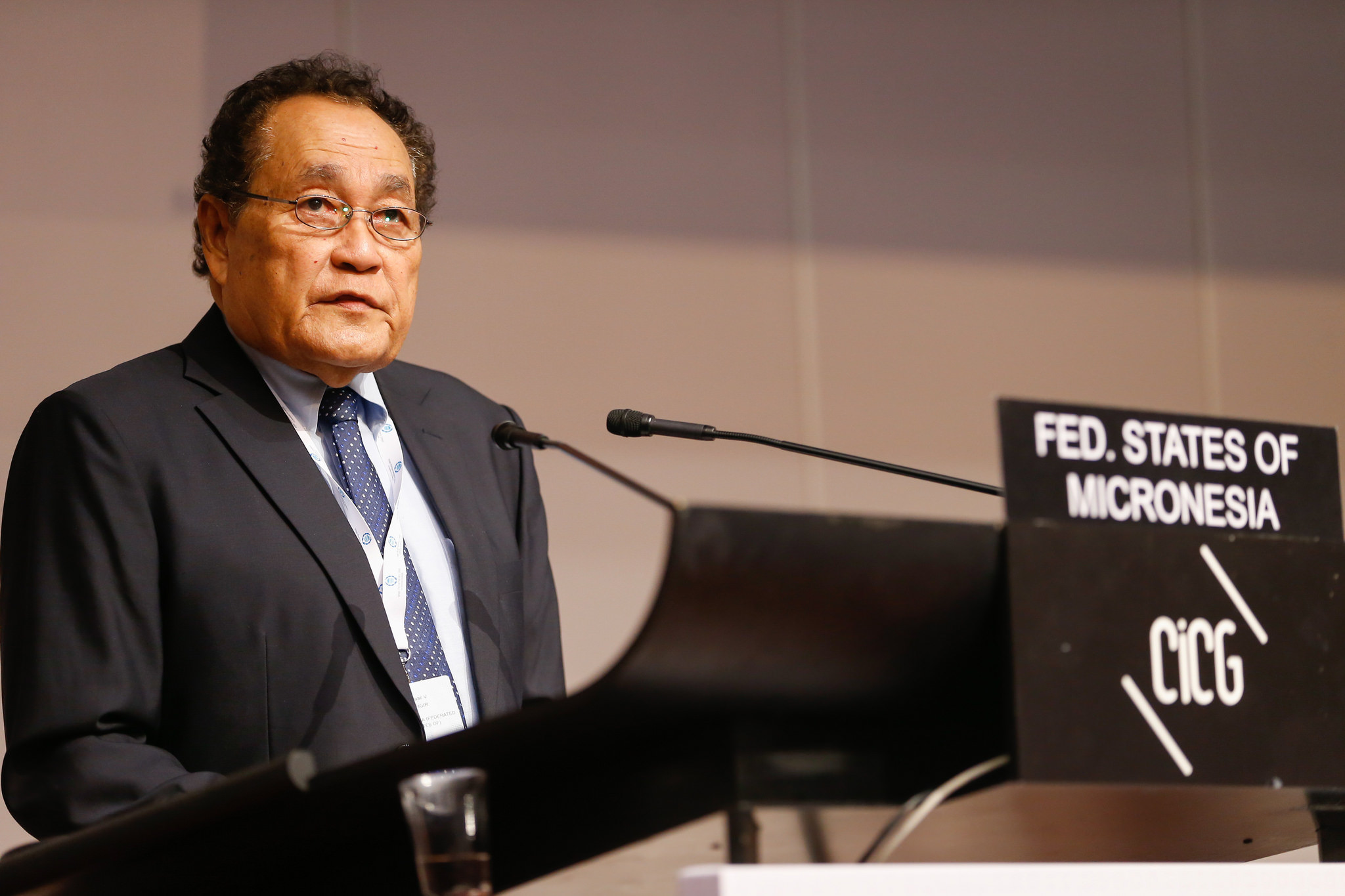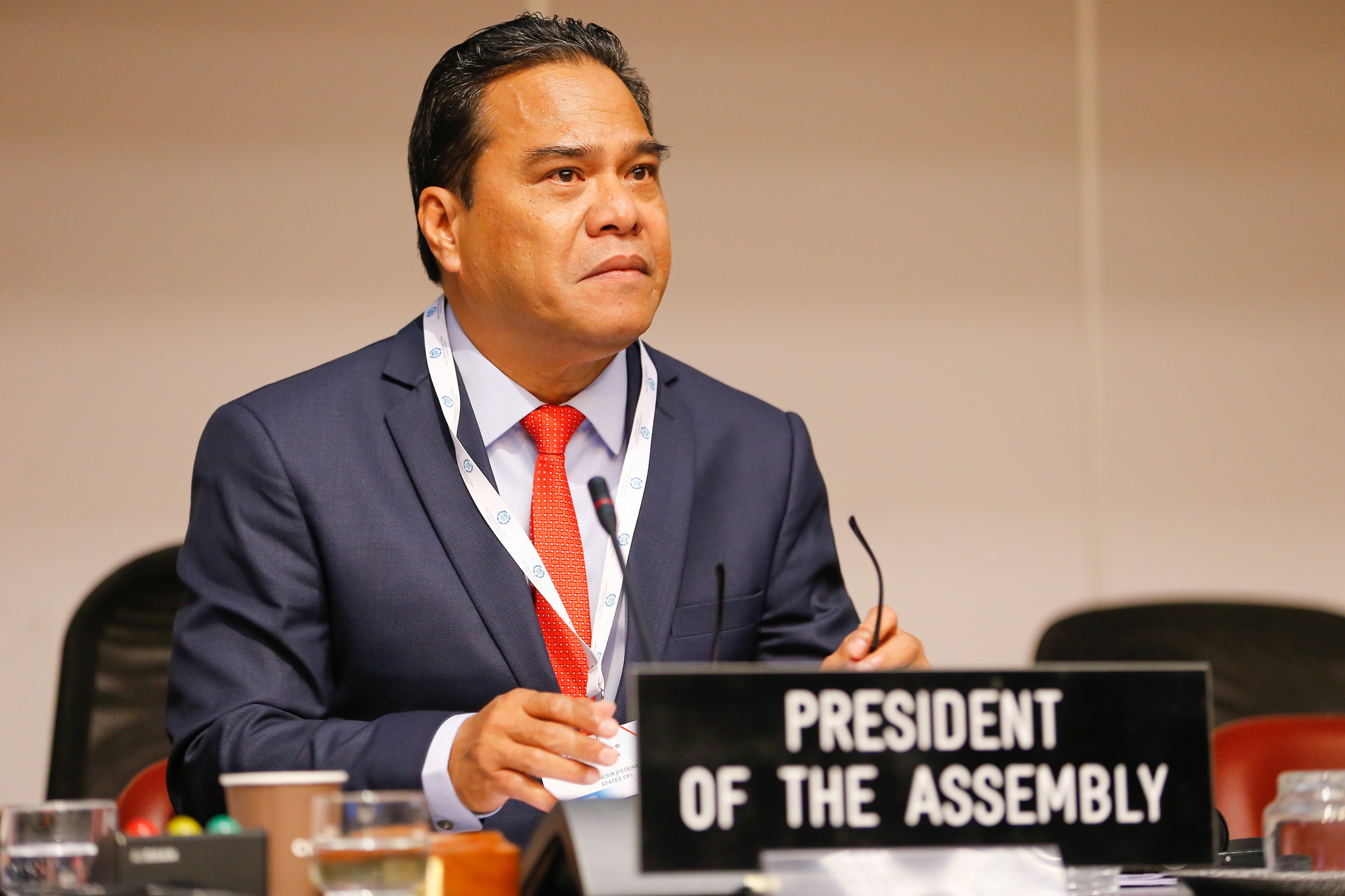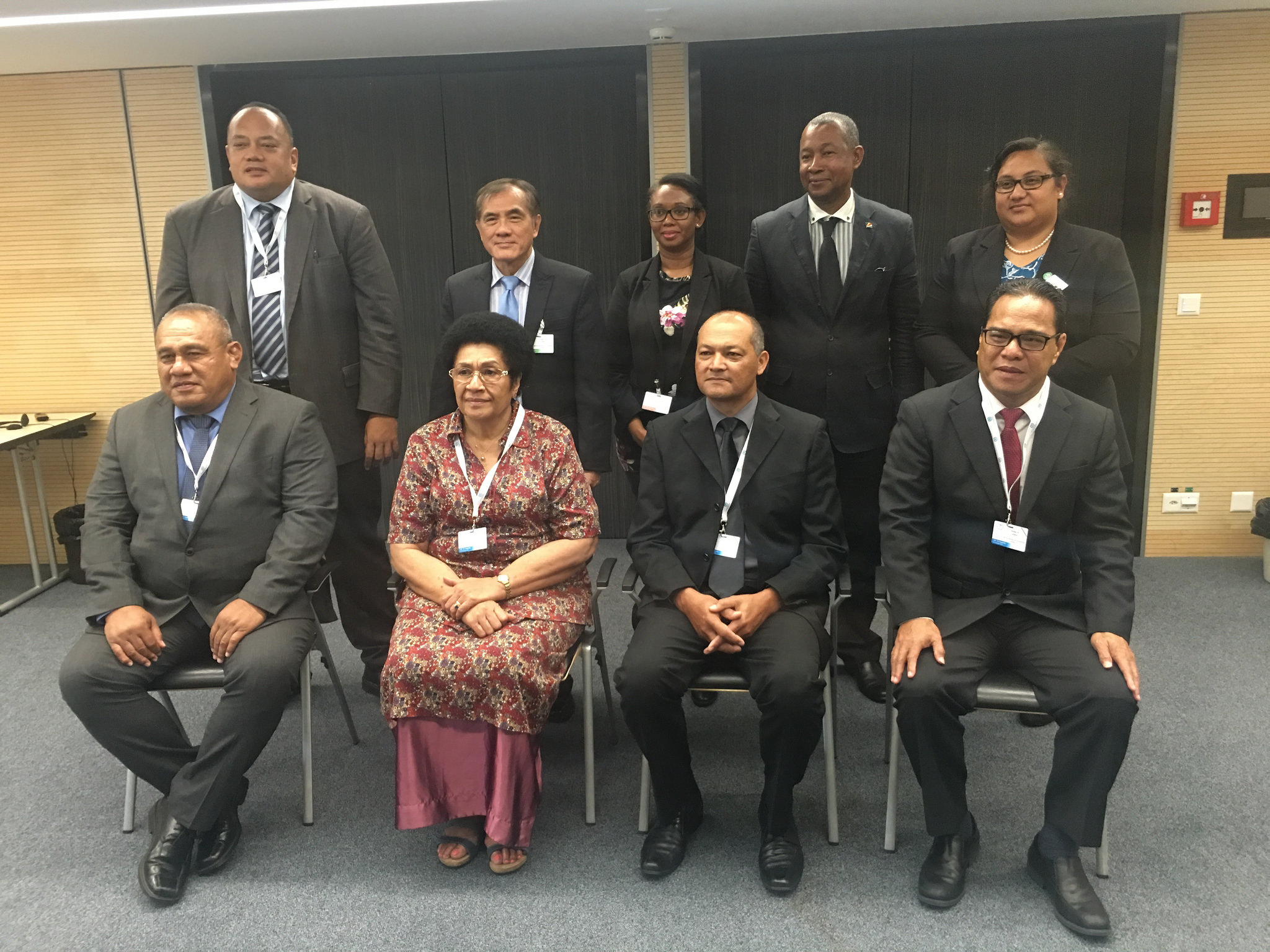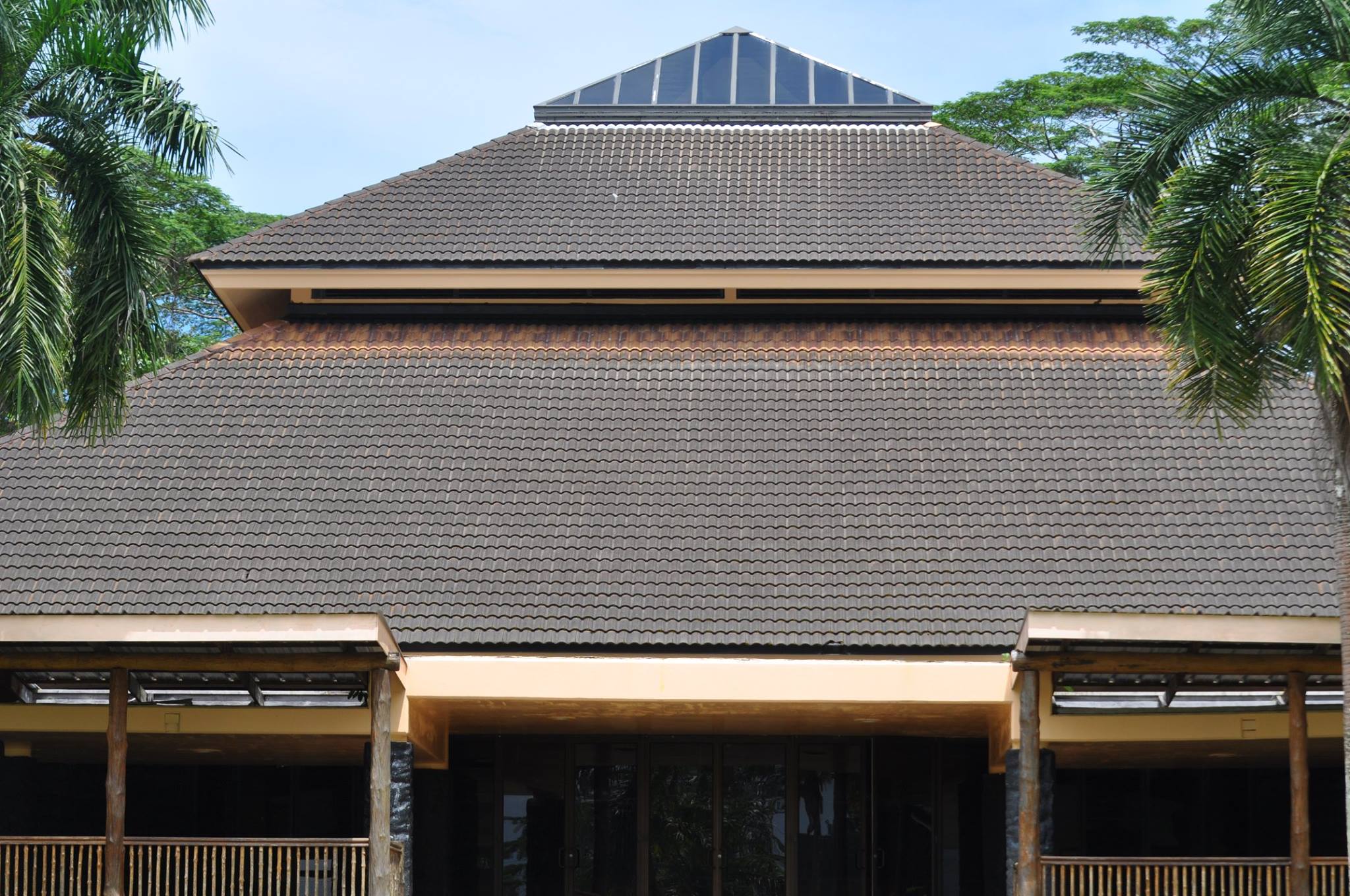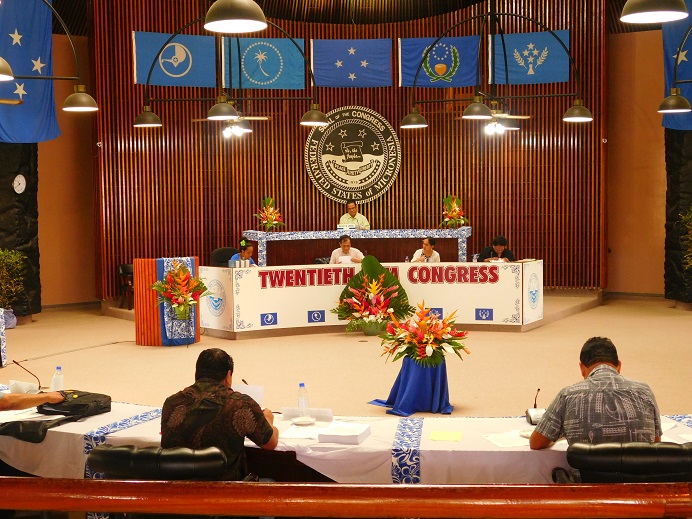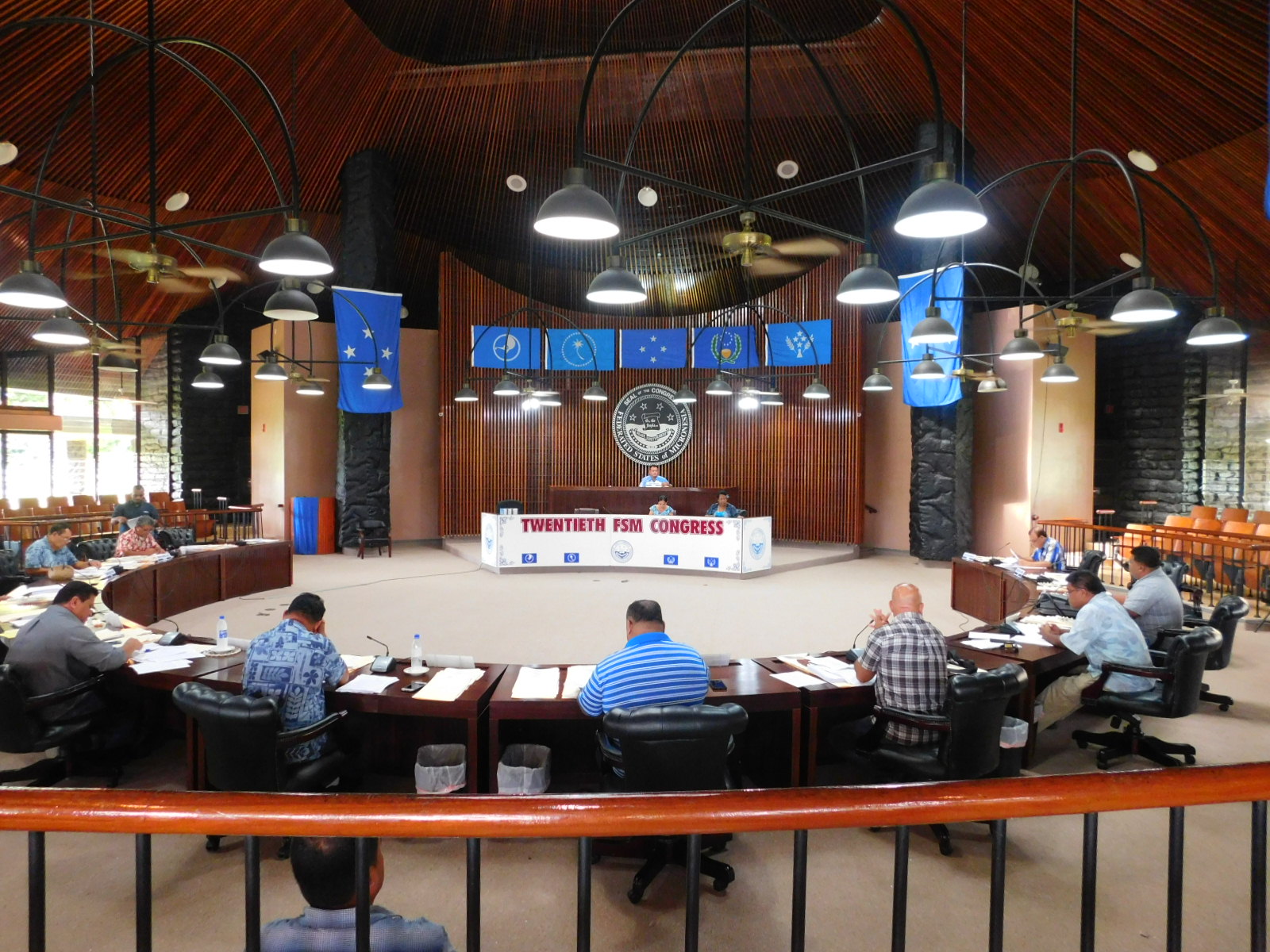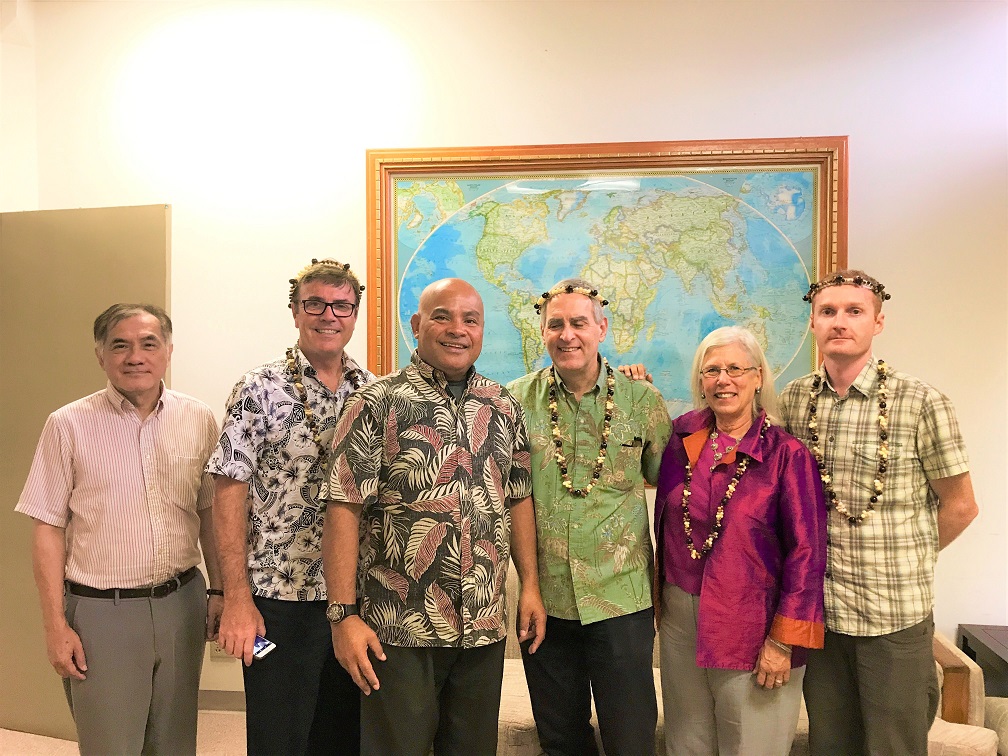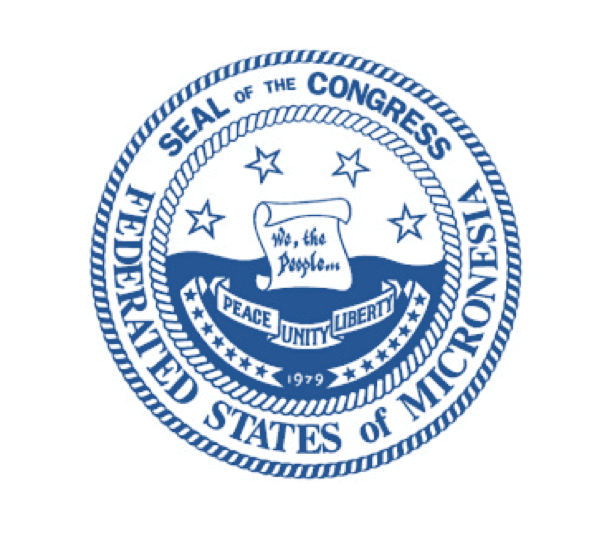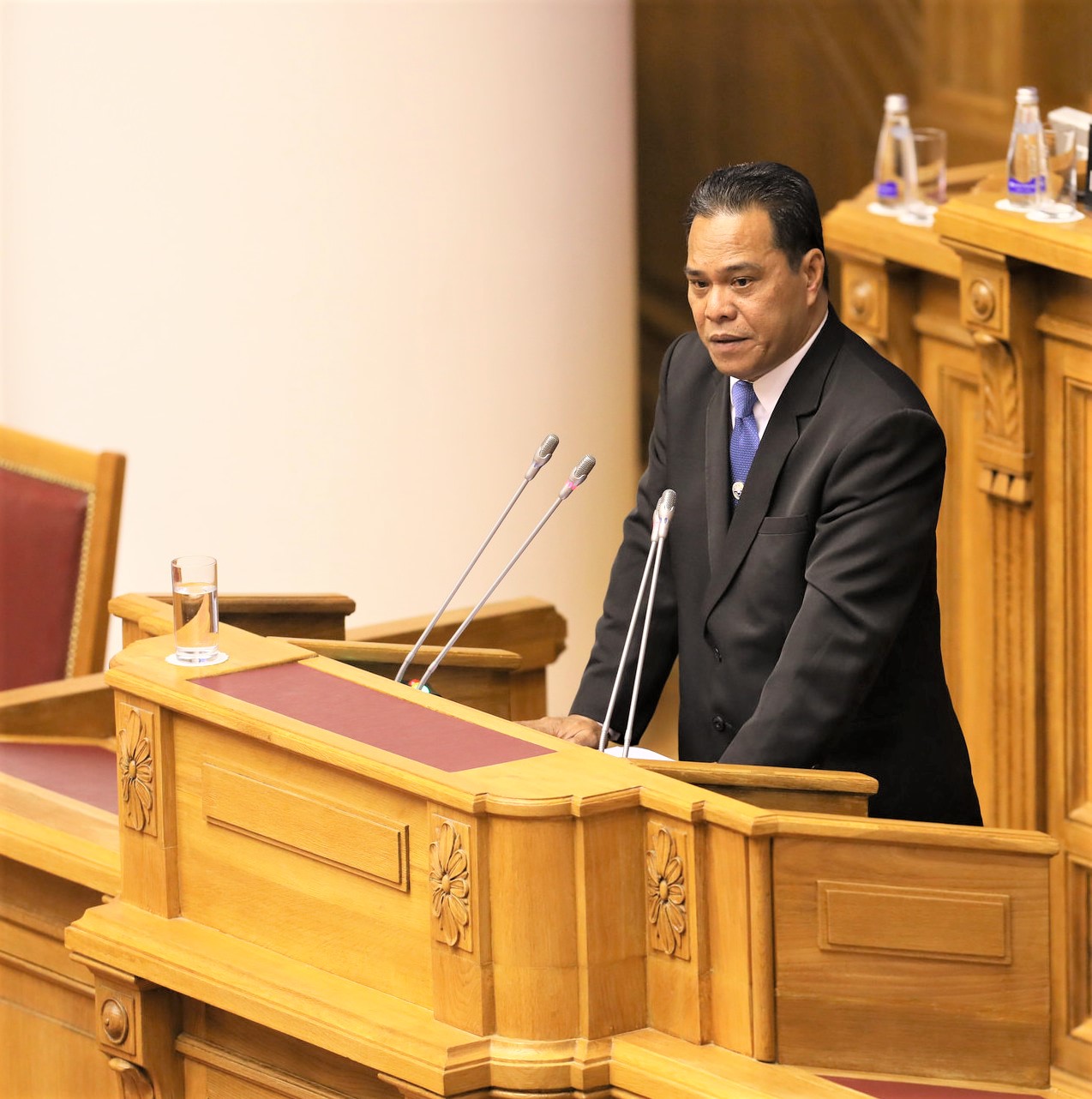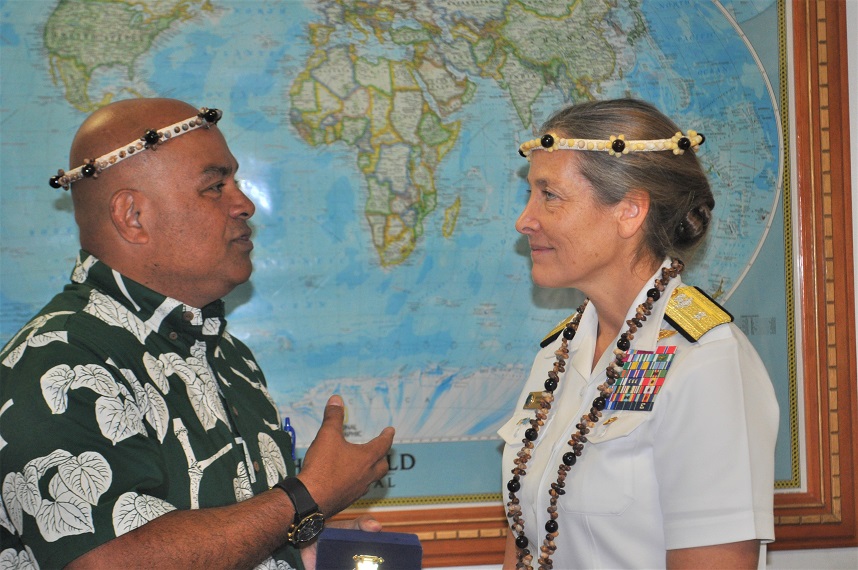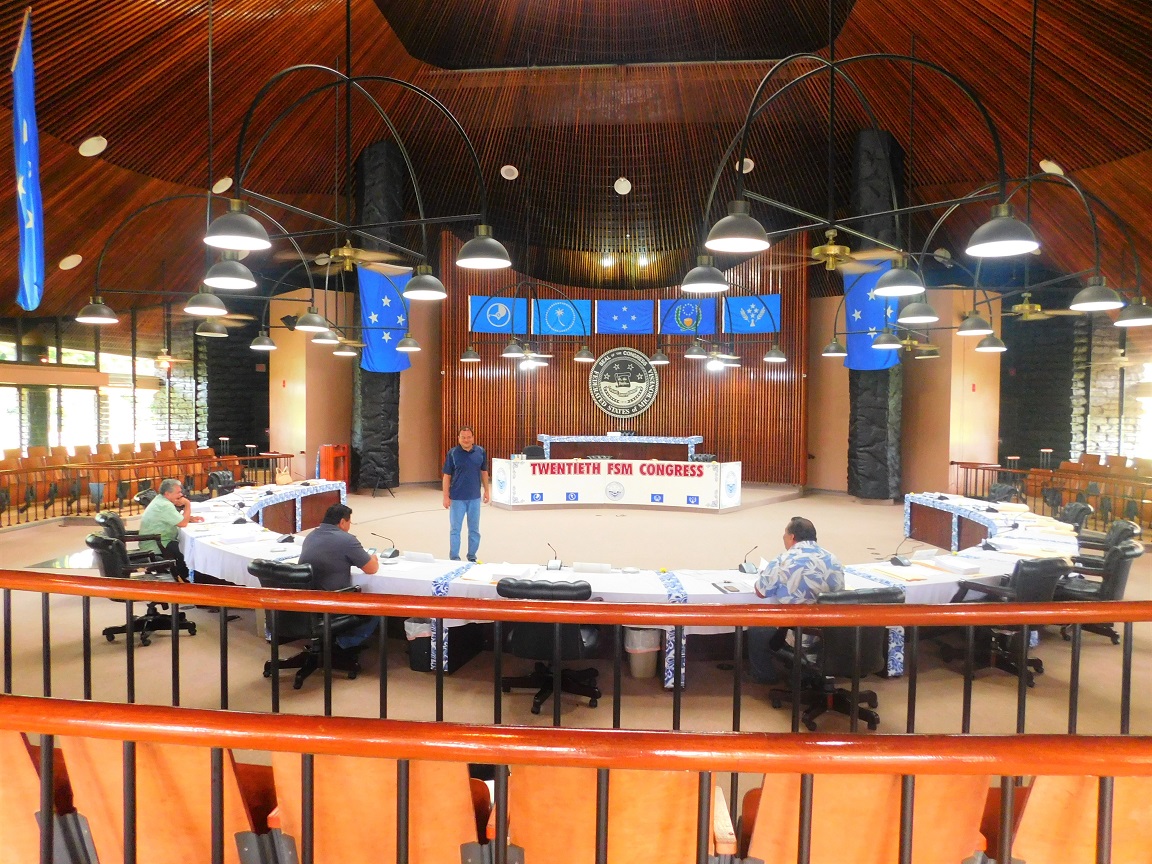 PALIKIR, POHNPEI – October 8, 2017. The 20th Congress of the Federated States of Micronesia adjourned its Second Regular Session on September 29th with the passage of measures for a new national budget and a new national department, among many others.
PALIKIR, POHNPEI – October 8, 2017. The 20th Congress of the Federated States of Micronesia adjourned its Second Regular Session on September 29th with the passage of measures for a new national budget and a new national department, among many others.
As convened on September 14, the 2nd Regular Session was to foremost pass the fiscal year 2018 operations budget for the National Government and address other matters pending before the body. With the Amended Compact funds zeroed out to the state government, the Congress passed Congressional Act (CA) 20-47, to appropriate a national budget of $67,903,100 to address operations of all branches of the National Government, its agencies, various programs, grants, subsidies and contributions and Capital and Human Resources Development.
Also for FY 2018 budget cycle, the Congress passed CA 20-51, to appropriate $8,500,000 to fund priority infrastructure projects in the states of Chuuk, Kosrae and Pohnpei. The state of Yap opted to maintain its funding for state priority infrastructure in the National Government FY-18 budget. The Congress had, during FY-2015, initiated a national government contribution of $10 million to fund the states priority infrastructure projects.
On a budget related matter, Congress had passed CA 20-39 for $160,000 to supplement the FY-2017 budget and CA 20-46 to extend the lapse date for the funding for the Joint Committee on Compact Review and Planning (JCRP) which is also in the FY17 budget.
A measure of note was the passage of (CA) 20-41, which appropriated $350,000 for purposes of humanitarian relief efforts for the victims of the Hurricanes Harvey and Irma in the United States, Cuba, Antigua and Barbuda, and for the Chiapas Earthquake in Mexico.
The final appropriation from the FY-2017 funds was CA 20-43, for an amount of $1,030,000 as additional contribution to the FSM Trust Fund and for payment for past due expenses related to the proposed Constitutional Amendment on Dual Citizenship.
Among the many pending matters was the creation of a new national department to address the issues of Environment, Climate Change and Emergency Management. The matter was first raised and passed during the May session but was vetoed by the President. Considerable discussions have since been held on the matter, which resulted in the passage of CA 20-42, for an additional National Department of Environment, Climate Change and Environment Management. The Act also dissolved the Office of Environment and Emergency Management, Climate Change and empowered the President to transition the functions of the dissolved office.
The remaining Acts were for grass root level projects and social programs in the four states to make either changes to the use of funds previously appropriated or to make changes to the allottees of those funds.
CA 20-40, begins the Acts and called to changes the use of funds previously appropriated therein to fund public projects and social programs in all the four states while CA 20-44, called for changes to lapse dates of existing public projects and social programs in the all four states;
CA 20-48, called for the change of use and allottee of certain funds previously appropriated for priority infrastructure projects and programs in the states of Chuuk and Pohnpei;
Specific to the State of Yap was CA 20-45, which called for change to lapse dates of previously appropriated funds; and
Specific to the State of Pohnpei were CA 20-49, CA 20-50; CA 20-52; and CA 20-53, to either change the use of funds previously appropriated or to make change the allottees of those funds.
All the Congressional Acts have been transmitted to the President to be signed into law.
* * *


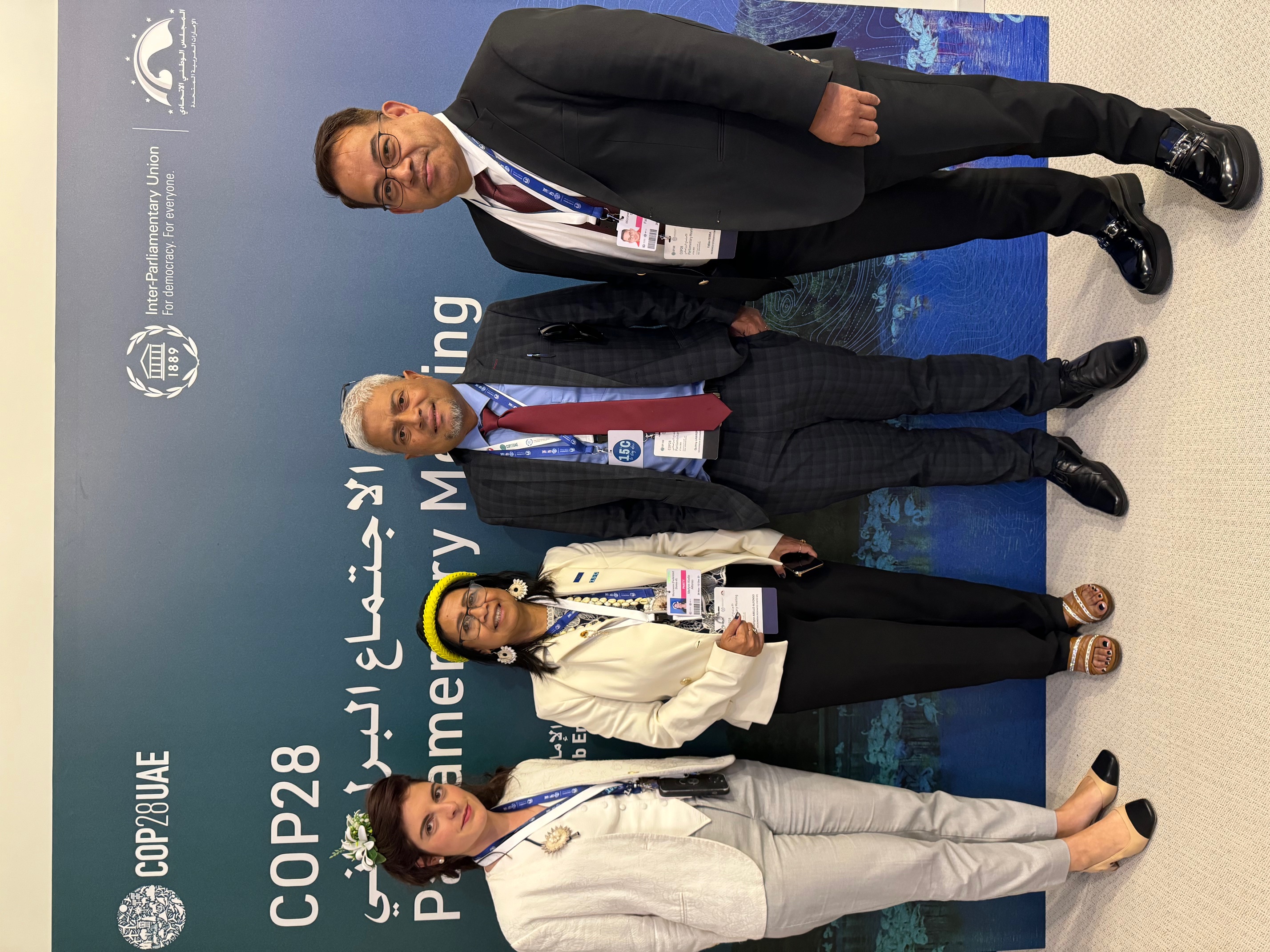
.jpg)
